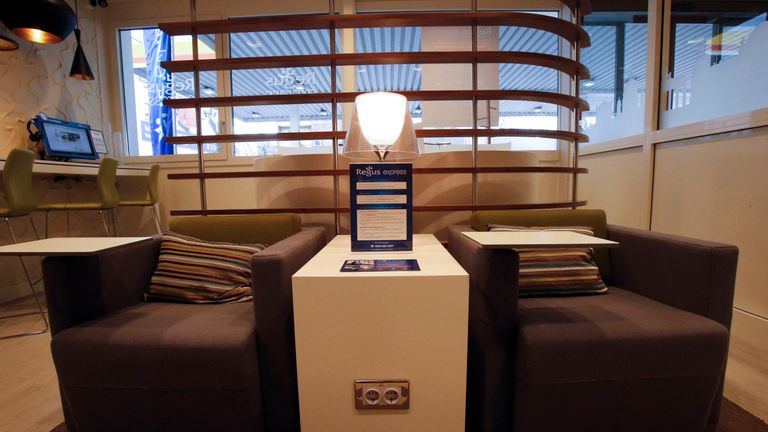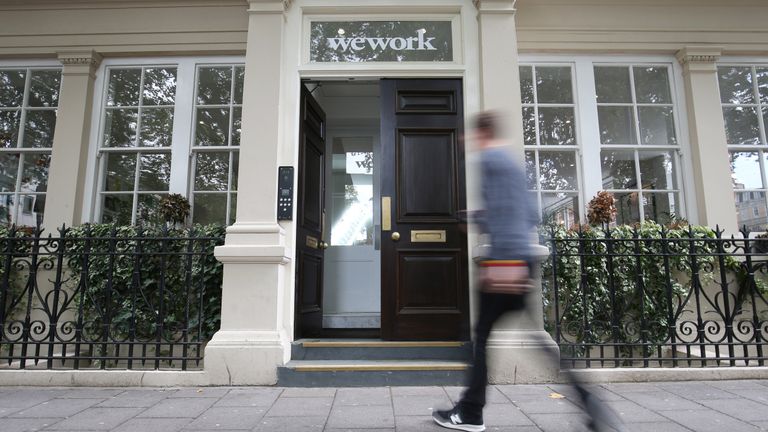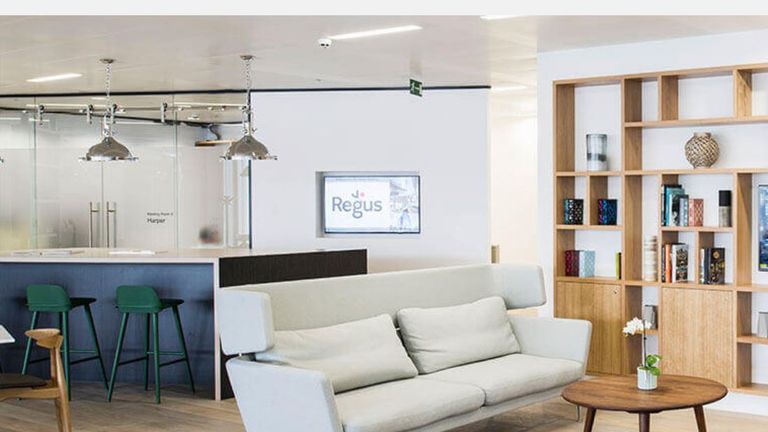Regus-owner IWG targets WeWork with plan for £3bn US float
The London-listed flexible office group is talking to bankers about a plan to float its US business in New York, Sky News learns.
Saturday 24 August 2019 13:58, UK
The tycoon who founded International Workplace Group (IWG), the world's largest shared office provider, is hatching a secret plot to spin off its US business into a separately listed company in New York.
Sky News has learnt that Mark Dixon, IWG's chief executive, is in talks with investment banks about creating a standalone business that would become a publicly traded rival to WeWork, the US unicorn targeting a valuation of about $50bn when it floats in the coming weeks.
IWG is understood to have told bankers that it will only hire them if they have no role in WeWork's initial public offering (IPO).
Sources cautioned this weekend that Mr Dixon's plan for a standalone US listing was at an early stage and was only one of a number of options under consideration.
People close to IWG insisted that banks had yet to be formally appointed to work on the deal.
If Mr Dixon does pursue the plan, the property entrepreneur is understood to believe that his company's US business could be worth as much as £3bn as a standalone franchise.
IWG's current market capitalisation in London is £3.64bn.
It would be a remarkable resurrection on the other side of the Atlantic for Mr Dixon, who was forced to place his American business into Chapter 11 bankruptcy protection in 2003.
The tycoon, who founded IWG as Regus Group in 1989 and holds a stake of more than 25%, has set his sights on turning the company into the McDonald's of the shared workspace industry by selling its 3,000-strong global office network to master franchisees.
Earlier this year, the company sold its Japanese operation to TKP for £320m in cash, with IWG's 130 offices in the country continuing to be operated under the country's brands.
Two weeks ago, it sold its smaller business in Taiwan to the same company for £23m.
The franchising arrangement allows IWG to generate fees from tenants without owning the underlying property assets.
Mr Dixon described the new model as "partnering for growth and getting some cash", comparing it to the world's best-known fast-food company and InterContinental Hotels Group.
"We think that is what will appeal to shareholders," he said at the time of IWG's half-year results earlier this month.
"You have basically licensing and services revenue, which will grow more rapidly as we franchise."
Last year, just over one-third of IWG's global revenue of £2.5bn came from its US operations, while the company has just over 1.000 locations in the country, making it the group's largest single market.
A New York listing for the US arm would be likely to come soon after that of WeWork, which remains heavily loss-making and has drawn widespread scepticism about its valuation.
It is the latest in a series of plots hatched by Mr Dixon in his attempt to unlock value from IWG's portfolio.
Over the last two years, he has held talks with a multitude of potential bidders for the company, including Brookfield Asset Management, Starwood and Terra Firma Capital Partners, the buyout firm run by Guy Hands.
None of those discussions progressed to an agreed bid.
Since then, IWG has explored a sale of Spaces, its design-led flexible workspace division, but again opted not to finalise a deal.
Mr Dixon's confidence in IWG's prospects was underlined by the announcement of a £100m share buy back programme alongside its results.
This week, another player in the flexible office market, Knotel, announced a $400m fundraising that took its valuation above $1bn, making it the industry's latest unicorn.
An IWG spokesman declined to comment on the possibility of a US listing for an American franchise.





